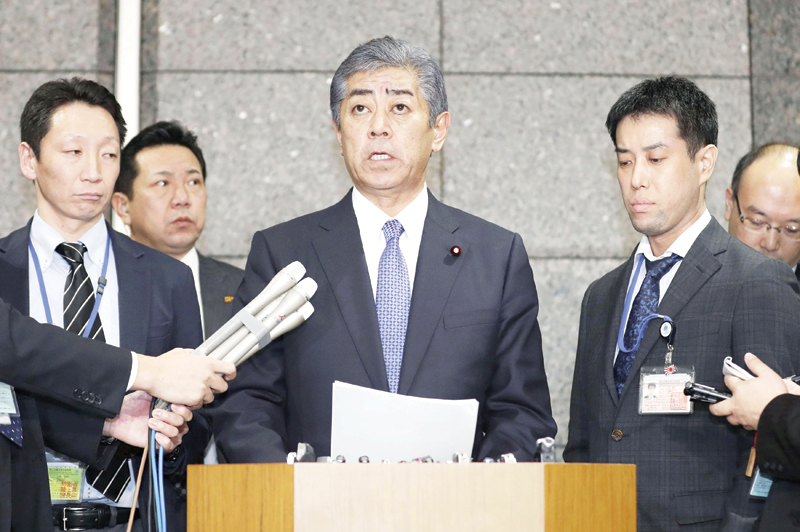

TOKYO/SEOUL: Japanese Defence Minister Takeshi Iwaya “strongly protested” to South Korea on Friday after a South Korean destroyer allegedly locked its targeting radar on a Japanese surveillance plane.
Iwaya, speaking to reporters at his ministry, described the action as “extremely dangerous that could cause an unexpected situation.”
The incident came at a time when greater coordination is called for between the two Asian neighbours to tackle issues including North Korea’s nuclear and missile programmes, maritime security and natural disasters, he said.
“It’s extremely regrettable that the incident of this time happened,” Iwaya said. “We will urge South Korea to prevent a recurrence.”
South Korea’s defence ministry said its destroyer was performing routine operations.
“We were operating a radar as part of the operation but it was not intended to trace any Japanese patrol aircraft,” the ministry said in a statement.
“We’ve spoken with the Japanese side on this issue but will provide further explanations so that there is no misunderstanding going forward.”
Fire control radar is used to pinpoint the location of a target for missiles or shells. Directing the radar at a target can be considered a step away from actual firing.
Iwaya said the South Korean destroyer directed the radar at a Japanese navy’s P-1 patrol plane, which was conducting surveillance off the Noto Peninsula in the Sea of Japan, on Thursday.
In early 2013, a Chinese vessel directed a similar radar at a Japanese navy ship, prompting Prime Minister Shinzo Abe to urge Beijing not to stoke tension over disputed East China Sea isles.
Relations between Japan and South Korea have cooled over a bitter history that includes Japan’s 1910-45 colonisation of the Korean peninsula, the forced mobilisation of labour at Japanese companies and the use of comfort women, Japan’s euphemism for girls and women forced to work in its wartime brothels. — Reuters
Oman Observer is now on the WhatsApp channel. Click here



